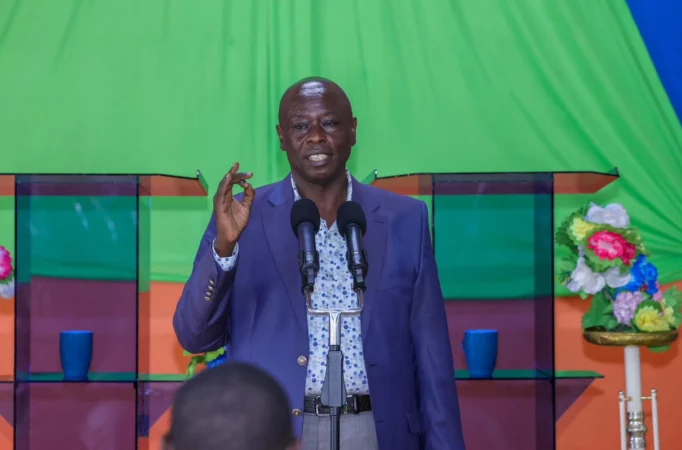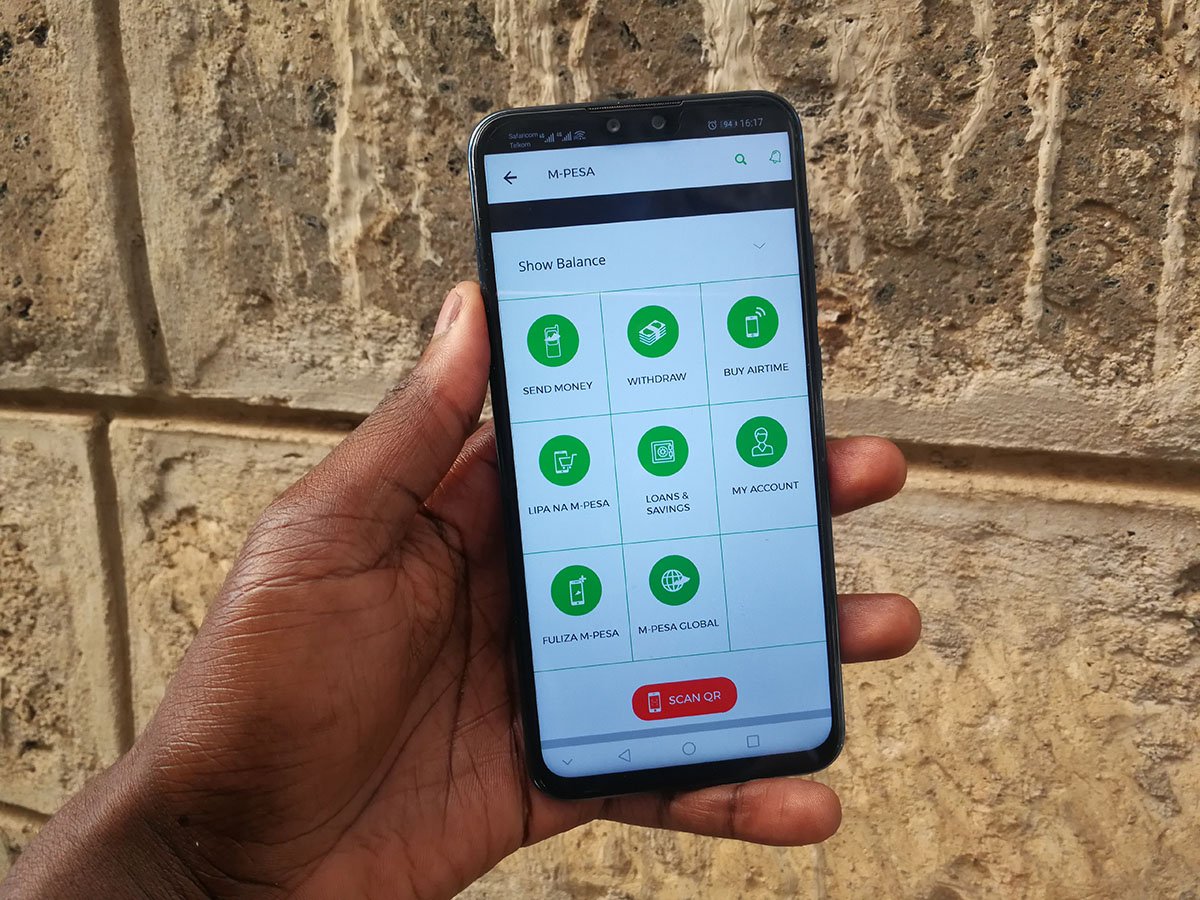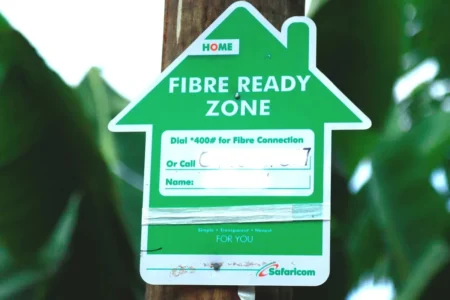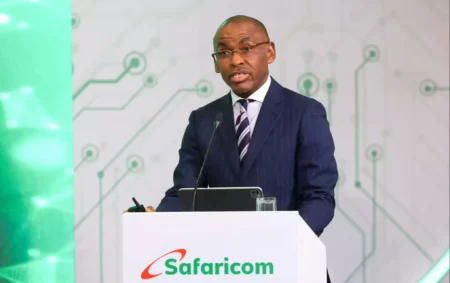NAIROBI, Kenya — For many Kenyans with family, friends, or business partners in Uganda, mobile money has long been the go-to lifeline for urgent cross-border transactions. Whether paying school fees, settling supplier bills, or sending emergency funds, Safaricom’s M-PESA Global service — linked to MTN Uganda’s Mobile Money platform — promises fast, seamless transfers.
What is M-PESA Global?
M-PESA Global is Safaricom’s international money transfer service, launched in 2018 to enable M-PESA users in Kenya to send and receive funds across borders.
It connects M-PESA to global remittance partners, banks, and other mobile money networks — including MTN Mobile Money in Uganda — allowing users to transact directly from their mobile phones.
The service is marketed as offering near-instant transfers for personal, business, and emergency needs, with transactions available in both Kenyan shillings and foreign currencies.
M-PESA Global is part of a broader push to integrate Africa’s mobile money systems, enabling regional trade, supporting diaspora remittances, and improving financial inclusion.
According to the GSMA’s State of the Industry Report on Mobile Money 2024, cross-border mobile money transactions in sub-Saharan Africa topped $34 billion in 2023, with Kenya and Uganda among the key corridors.
What is MTN Mobile Money?
MTN Mobile Money (MoMo) is Uganda’s largest mobile financial platform, operated by MTN Uganda. Launched in 2009, it allows users to send, receive, and store money, pay bills, buy goods, and access basic financial services directly from a mobile phone.
With millions of registered users, MTN MoMo has become a critical tool for everyday transactions and business payments in Uganda. It is integrated with several regional and global payment systems, including M-PESA Global, to facilitate cross-border transfers — at least in theory.
Like M-PESA, MTN MoMo is positioned as a secure, instant, and convenient way to handle money without relying on traditional banking.
However, when integration glitches occur between the two networks, the promise of speed and reliability is put to the test.
When three days is too late
But for a growing number of customers, the service is falling short. Instead of the near-instant delivery mobile money is known for, some users say funds vanish into a digital void — deducted from the sender’s account but never reaching the recipient.
The common outcome? A standard customer service message: “Your money will be reversed within 72 hours.”
For users caught in emergencies, the 72-hour reversal period can have devastating consequences. In urgent situations — such as paying for hospital treatment, meeting school fee deadlines, or finalising a time-sensitive business deal — three days can make all the difference.
“It’s not just a delay — it defeats the very purpose of mobile money,” one affected customer told Vivid Voice News. “You send money for something urgent, but instead you’re left stranded, your balance reduced, and no clear answers.”
The frustration is compounded by a lack of transparency. Some customers suspect technical incompatibility between Safaricom and MTN systems, while others speculate about unresolved commercial disagreements between the two telecoms giants.
Big brands, big gaps
Safaricom and MTN both market themselves as leaders in mobile financial innovation, with M-PESA and MTN Mobile Money celebrated as African success stories.
The platforms handle billions of dollars annually across multiple countries, often praised by development agencies for improving financial inclusion.
Yet, the recurring nature of these cross-border transaction failures is raising questions about whether the companies are doing enough to ensure system reliability. The absence of a joint public explanation from either provider has left customers in the dark.
Industry analysts note that while domestic mobile money transfers within Kenya or Uganda are typically smooth, cross-border interoperability remains a challenge in Africa.
Factors such as differing regulatory frameworks, settlement procedures, and technical integration can cause delays — but many argue these are solvable with corporate will.
Human impact beyond the numbers
The fallout is not just technical; it’s deeply personal. Families are forced to borrow from neighbours while awaiting reversals, students miss registration deadlines and small traders lose supplier trust.
Over time, repeated disruptions risk eroding confidence in services that once symbolised African fintech success.
“When customers’ trust is broken, they will eventually look for alternatives,” warns a Nairobi-based digital finance consultant. “It’s not just about refunds — it’s about reliability and credibility.”
Consumer protection and accountability
Experts say part of the problem is the absence of enforceable service-level agreements (SLAs) for cross-border mobile money in East Africa.
Also Read: Safaricom enables seamless PayPal withdrawals directly via M-Pesa app for Kenyan users
While domestic transactions are often regulated with strict timelines, international mobile transfers fall into a grey zone where delays are common — and customers have little legal recourse.
Consumer advocacy groups in Kenya and Uganda have called for:
- Faster reversal times — ideally under 24 hours.
- Joint technical troubleshooting teams between Safaricom and MTN.
- Public reporting on failed or delayed transactions to improve accountability.
- Clear compensation policies when service failures cause financial harm.
A call for urgency
Critics say both Safaricom and MTN need to treat the issue with the seriousness it deserves, prioritising technical fixes, improving transparency, and shortening reversal timelines.
Consumer protection bodies in Kenya and Uganda have also been urged to investigate persistent complaints and push for clearer service guarantees.
Until then, for customers who depend on these platforms, the much-advertised “seamless instant transfers” remain an elusive promise — and the 72-hour wait a lasting symbol of corporate indifference to the real-world impact of technical and operational failures.







